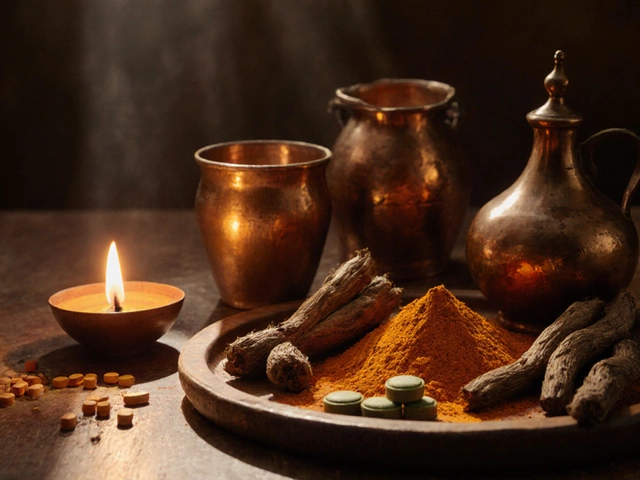Not every “natural” herb calms you. Learn which herbs can trigger anxiety, why it happens, who’s at risk, and safer alternatives-backed by credible sources.
Read MoreYohimbe and Anxiety: What You Need to Know
Yohimbe is a bark extract that’s been used for centuries in Africa as a stimulant and aphrodisiac. In recent years it shows up in gyms, weight‑loss pills, and even anxiety‑relief products. But does it actually help calm nerves, or could it make things worse? Let’s break it down in plain language so you can decide if it’s worth trying.
How Yohimbe Might Influence Anxiety
Yohimbe contains a compound called yohimbine, which blocks certain receptors in the brain that usually keep adrenaline in check. The result is a short‑term boost in heart rate and blood pressure. Some people say that extra energy helps them feel less “wound up” because they can focus better. Others report a jittery feeling that mimics panic. The effect varies a lot depending on dose, body chemistry, and whether you’re already on medication.
Typical Doses and How to Take It
Most studies use 5‑10 mg of yohimbine taken one to three times a day. Over‑the‑counter supplements often list higher amounts, which can raise the risk of side effects. If you decide to try it, start with the lowest dose, take it with food, and watch how your body reacts for a few days before adjusting.
Timing matters. Taking yohimbe late in the afternoon can keep you awake, so many users prefer a morning dose. Split dosing (e.g., 5 mg in the morning and 5 mg at lunch) can smooth out spikes in energy and reduce the chance of a crash.
Safety Concerns You Can’t Ignore
Yohimbe isn’t a gentle herb. Common side effects include rapid heartbeat, high blood pressure, anxiety, and headaches. In rare cases it can cause severe heart rhythm problems, especially if you have a pre‑existing condition. If you’re on antidepressants, blood thinners, or medications for heart disease, the risk jumps dramatically.
Pregnant or nursing women should steer clear; there’s no reliable safety data. People with anxiety disorders should be cautious because the stimulant effect can trigger panic attacks in some individuals.
When to Skip Yohimbe
If you’ve ever felt a racing heart after drinking coffee, Yohimbe could feel the same but stronger. Those with hypertension, arrhythmia, or a history of heart attacks should avoid it altogether. Also, if you notice any new tremors, dizziness, or intense nervousness, stop using it immediately and talk to a healthcare professional.
Alternatives for Anxiety Relief
There are gentler options that work well for most people: magnesium, L‑theanine, or adaptogenic herbs like ashwagandha and rhodiola. Regular exercise, breathing exercises, and proper sleep often outshine a stimulant when it comes to calming the mind.
For those who still want a herbal edge, valerian root or passionflower can help without the heart‑pumping side effects. Always check with a doctor before mixing supplements.
Bottom Line
Yohimbe can give a brief energy boost that some people interpret as reduced anxiety, but it also carries a real risk of making you feel more wired. Start low, monitor your vitals, and know when to back off. If you have any heart or mental‑health concerns, safer alternatives are probably a better bet. Use common sense, stay informed, and let your body guide the decision.





